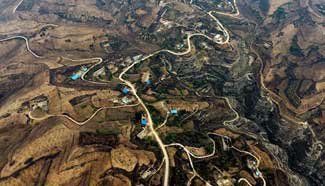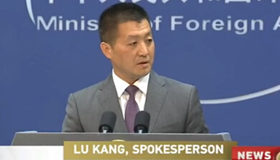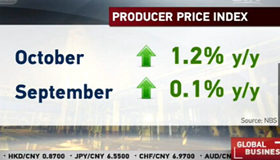by Mahmoud Fouly, Emad al-Azrak
CAIRO, Nov. 9 (Xinhua) -- The stunning win of U.S. Republican Donald Trump as the country's 45th president raises hope and concern over the new U.S. policies in the turmoil-stricken Middle East, said Egyptian experts.
Business tycoon and political neophyte Trump defeated Wednesday his Democrat rival Hillary Clinton in a close presidential race after a controversial and scandalous campaign cycle, surprising a lot of political experts and observers around the world.
WORRYING REMARKS
Trump's aggressive remarks during his presidential campaign that offended many Arabs, Muslims and migrants raised concerns over policies the new U.S. administration would follow in the Middle East region.
"During his campaign, Trump announced his support for Israel and said he would move its capital city from Tel Aviv to controversial Jerusalem, which is a worrying and regrettable position," said Egyptian former ambassador to Washington Al-Sayyid Amin Shalaby, noting he was one of those surprised by Trump's victory.
Shalaby hoped that Trump would receive the necessary consultation from his advisers about the seriousness of such a step on peace in the Mideast region, noting the Palestinian Authority expressed a desire to cooperate with the new U.S. administration based on the UN relevant resolutions.
"But after he won elections, Trump's first remarks meant to lighten his previous ones, stressing his willingness to cooperate with all Washington's allies to achieve common interests," he added.
Trump recurrently affirmed his future cooperation with regional players including Egypt and Jordan to address the Middle East crises including growing terrorism.
"We should wait for some weeks or months until the picture is clear about Trump's positions on several issues, particularly those related to the Middle East region," Shalaby said.
NEW POLICY HOPE
The approach of the last Republican before Trump, George W. Bush, cost the Middle East so dear as manifested in the war in Iraq and the subsequent turmoil in the region. Yet Democratic President Barack Obama did not do any better to restore regional stability despite his "new beginning" promises when first elected.
"Trump's victory may have a positive effect on the Middle East and may open the way for new actions in the region with new influential regional players," said Saeed al-Lawindi, researcher of international relations at Cairo-based Al-Ahram Center for Political and Strategic Studies.
"The U.S. has fixed policies towards the Middle East but I believe the Republicans will attempt to ease the regional tensions, as Trump blamed Obama's administration for mismanaging Mideast crises, particularly that of Iraq," Lawindi said.
Trump's win is believed to have raised hope for some Arab leaders including Syrian President Bashar al-Assad, whom Trump believes to be fighting the Islamic State (IS) terrorists, and Egyptian President Abdel-Fattah al-Sisi, whom Trump promised partnership in anti-terrorism wars.
Noha Bakr, a political science professor at the American University in Cairo, argued that Trump's victory reflects U.S. citizens' rejection of Obama's policies based on interference of other countries' domestic affairs, which is clearly denounced by Trump.
He noted that the U.S. insisted on Assad's departure under Obama, but Trump will "take a different path and will agree with the Russian and the Egyptian visions on the Syrian crisis, which are based on Syria's unity and Assad's presence for a transitional period while getting rid of the IS."










